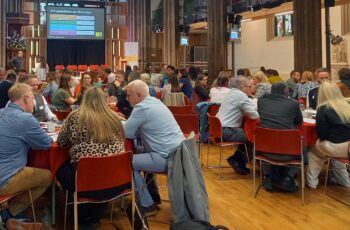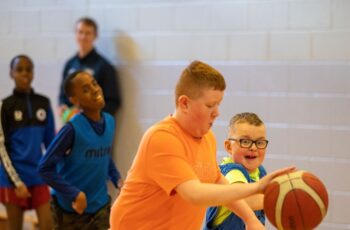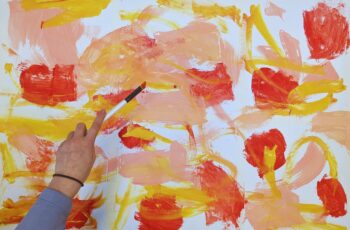
Spark of Genius Caledonian School in Glengarnock, North Ayrshire, are a leading provider of education and residential care for children and young people aged 5-18 with social, emotional, and behavioural difficulties. The school offers individualised pathways to empower and enable pupils, including a combination of residential and day placements.
The school receives CashBack funding through the YDance project strand which covers Alternative Education, targeting young people who struggle to engage in mainstream education and encouraging them to build confidence and express themselves through dance.
Jessica Ho, YDance, explains how the programme operated within Spark of Genius Caledonian School:
“The programme started at the end of April and ran for nine weeks. It was delivered one day a week, for one hour per session. Six young people took part – three boys and three girls, all aged between thirteen and fifteen years old.
“The programme was impacted by the restrictions in place due to Covid-19, and this meant having to deliver the sessions outside instead of indoors. As a result there were additional challenges to overcome in terms of keeping the young people focused, as they could become distracted by other activities that were being delivered at the same time as the dance programme.
“I picked up that the young people lacked confidence and there was a sense that they felt things were done to them. Therefore I felt it was important to give the group a sense of ownership and connection with the sessions, and not force them to take part.”
Young people were sometimes reluctant to participate in the sessions, due to lack of confidence, perceived lack of dance ability or other factors. While they were always gently encouraged to join in, participants were permitted to go at their own pace and sit sessions out if they wished.
“At the start of the programme, Linda* came along and was unwilling to dance. I let her know that I understood her view and explained that dance wasn’t for everyone. However, I encouraged her to come along and just watch what was going on, suggesting she may enjoy the music without having to take part. So she decided to come along. She spent the first half of the session not saying anything, just looking and taking in what was going on, then she got up and stared taking part in the dance session that lasted for 50 minutes. She eventually became fully committed to the programme.
“Gavin was another young person who initially refused to take part. I decided not to address this directly and explained that I was happy for him to come along and wouldn’t force him to do something he didn’t want to do. I spoke to his support worker who explained Gavin’s acute confidence issues were due to a condition that affected his mobility. So I explained that I would try to get him to at least do the warm up exercises and if he did that it would be a positive outcome.
“Along with the others in the group, I asked Gavin to pick a song he liked, and said I would create a dance routine to that song for one of the sessions. My thinking was that even if he didn’t engage with the dance, he may engage with the song because it was something he had chosen. The following week he took part in the warm up and because the dance session was based on his song he took part in the full session. From that point on, Gavin took part every week, dancing along with the others.”
The dance programme has seen young people grow in confidence, more readily take responsibility for their behaviour, and adopt a teamwork approach to dealing with challenges, and has massively impacted on participants’ overall wellbeing and engagement. One young person said, “I feel included and feel part of the group. I now get to stay all day at school on a Monday.” Another remarked, “I’m better at listening. I’m following instructions and making up routines. I can’t make up dances at home myself, cause I forget how to do it. It’s only when I’m with Jessica that I know how to do it because she is showing me.”
As a result of the young people’s sustained commitment and involvement in the programme, all participants received a Personal Achievement Award. For some, knowing that their efforts were recognised and validated provided a meaningful confidence boost.
Jessica said, “I think the greatest impact I witnessed was their engagement and commitment to the programme. It was great to witness the shift from their reluctance – and in some cases, refusal – to take part, to them enthusiastically getting involved, asking questions, and taking ownership of some of the programme content.
“Another amazing benefit was that the experience and learning gained through the programme was transferred to other aspects of the pupils’ lives. For example, one boy who only attended half a day ultimately increased this school attendance because of his involvement in the YDance programme.”



